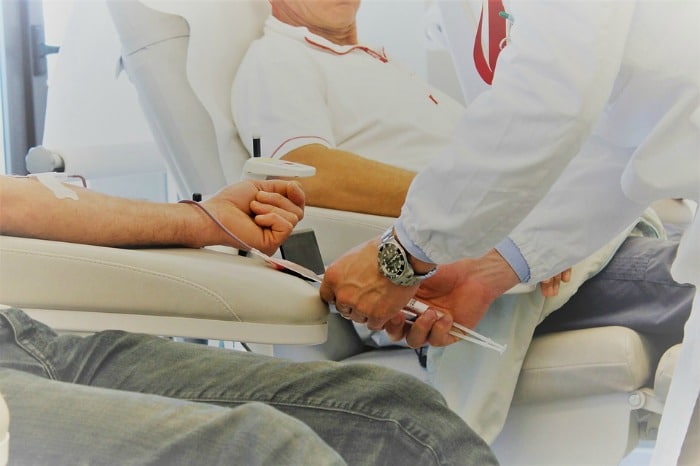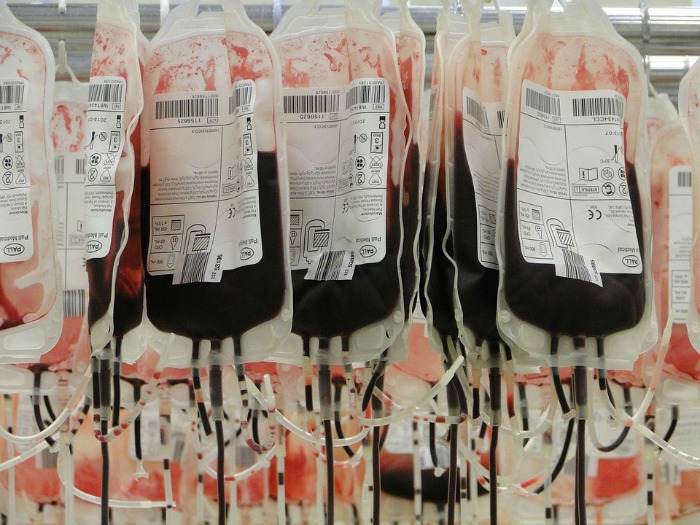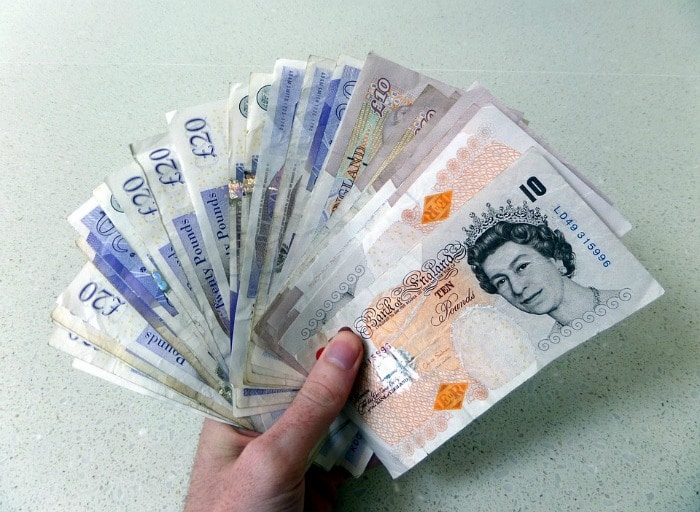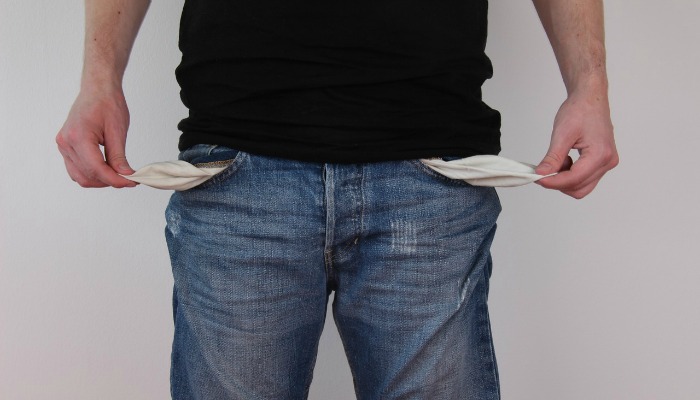As I sat and gave blood a few weeks back (then nearly passed out afterwards), I wondered what on earth I was doing to put myself through it.
I walked in, knowing I was doing something good for someone I’d never meet. It felt good to be doing something selfless.
When you don’t always have a lot of money spare to donate to charity, for me, doing something like giving blood or volunteering is a free way to give something back and support people in need.
Get a free £10 bonus with Swagbucks
Earn a bit of extra money in your spare time with surveys, videos, and simple tasks you can do at home.
New users can get a £10 bonus when they sign up.
Get the £10 bonus
But, after sitting in a massive hall, with my legs up in the air as I tried to shake the dizzy feeling, I started to wonder if it was worth it in the first place.
Then, as I sat eating my choccy biscuits and drinking lemon squash, I pondered if the whole thing was just a waste of my time as I should be getting back to work to try and earn some money.
In the waiting room, it took an hour for me to stop feeling heady, and I started to think I wouldn’t bother giving blood again if it was going to be this much hassle.
It was just me, though – it sometimes just happens.
While I was sitting there, feeling sorry for myself, loads of other people got up after their donation, had a quick cuppa and carried on with their day as if nothing had happened.
It’s not always like that when you give blood; it usually goes a lot smoother, I promise.
A few days later
I had almost convinced myself that giving blood wasn’t for me anymore. There’s no benefit for me; I don’t get paid for my time, so why bother again?
But then I got a text message.
While sitting at one end of the country, my donation was taken down and issued to someone in Southampton General Hospital.
Then I got a feeling you can never pay for. I felt good – I mean really great.
I suppose it’s like having a baby. It hurts like crazy in the moment, but you forget the actual pain and go on to do it again because the emotions you get are worth it.
Do you get paid for donating blood?

In the UK, we don’t get paid to give blood.
We give it.
Freely and for our own reasons.
For me, it’s the knowledge that I’m helping someone. I don’t know who they are, what they had for breakfast or what they’ll be doing next week, but I just hope my donation will help them be ok.
I think donating blood is all about getting into the spirit of being British and pitching a hand in to help out.
The World Health Organisation (WHO) has been pushing countries to make sure that 100% of blood comes from unpaid volunteers.
According to WHO, in 2013, there were 71 countries where less than 50% of blood supplies come from voluntary unpaid donors, with much of their blood supply coming from family and paid blood donors.
There were 74 countries that collected more than 90% of their blood supply from voluntary, unpaid blood donors.
WHO says that even if you’re not being paid to donate blood, you could receive small tokens that are reasonable for your time.
So, some countries offer refreshments (like in the UK), and others pay for reimbursements of direct travel costs and reasonable time off work for the donation and travel.
Would more people donate for cash?

Perhaps they would…but is that a good thing?
It might be that there are three different kinds of people who would donate.
There’d be ones who did it anyway, and it’s not even about the free biscuits and cup of tea at the end.
Maybe they’d end up turning the cash down? However, I can’t really see anyone saying no to free money…but it may just put them off altogether.
Then, there would be another group of people who may have sat on the fence about it before. They may have donated once or twice but put off going as they’d need to take it off work or they’re busy doing something else. The cash would be the sweetener to make them move along and donate.
Finally, I think there are people who are desperate for extra money.
People who’ve already gone through their possessions at home and sold their excess clothes, DVDs, and even furniture to get some extra cash when things are so tight.
It would be people who don’t have a home and just need some money to make it through the next day.
Blood money

The trouble with paying for blood donations is that the quality could likely go down.
In a last-ditch attempt to make some money, to supplement their low income, or to give them a basic wage, people give blood just to get the cash.
While it may seem like an over generalisation, people who want to be paid to give their blood, unfortunately, may have more blood-borne viruses or infections. Donating blood for free means there is more safe blood, and people are donating because of moral duty, personal satisfaction and pride.
Getting paid to give blood is a massive motivation for people who really need the money. While making a few more quid is great (don’t get me wrong), if it’s going to affect the safety and health of others, then it’s really not right.
What’s been seen in the past is that paid donors have led lifestyles that expose them to the risk of HIV and other infections that could be transmitted through their blood.
Trouble is, because people are so anxious about getting the cash, they can bend the truth during the donor interview, which leads to unsafe blood getting into the system.
I don’t know about you, but, personally, if I was the receiver of blood, I’d much prefer for it to come from someone who was safe to give it.
Getting paid to donate

Even in the UK, NHS aside, some companies do pay you for blood or plasma as part of paid clinical trials (UK).
You can get paid up to £100 (and more). However, it would mean your blood wouldn’t go on to help someone but could go through some kind of testing or be used in trials to develop safe medicines.
While it’s not blood, places in America pay you to donate blood plasma.
Closer to home, Germany, Hungry and Austria have centres that pay you.
Although, they say they pay you for your time, not for the plasma itself…

While I know there are a number of people who aren’t able to give blood, this isn’t a discussion about that. Some of it is to do with safety, and I know there are many people who really want to donate (not even for the free cuppa tea) but are not allowed to.
Would getting paid for blood push more people who are not eligible to try?
What I’m not thinking about is those who are absolutely willing to give a pint of blood but just aren’t able to.
There are a fair few rules surrounding giving blood in the UK, and they’ve been set up as a preventative way to protect who the blood goes onto.

Without even paying, blood is an expensive resource that we all need to live.
While donating an act of great kindness, if you’ve got to take time out of your day, would it be better if you should be paid for your time?
If we got paid to donate (well, it wouldn’t be donating anymore), would it just become bloody money?
Saved a few quid with our tips?
If Skint Dad has helped you spend less or feel more in control of your money, you can support the site with a small contribution.
- I was sent a fake HMRC tax notice. Here’s how to spot the scam - 8 January 2026
- A once-a-year money check most families forget (with rough savings) - 6 January 2026
- The January bills reality check: the traffic light method that works - 1 January 2026

sheila davies says
Hi, I used to give blood, but then had to fill a form in which asked if I had ever had a blood transfusion,,, which I have. I was then told I couldn’t give blood again. Is this really the case? Sheila
Richard H says
As a wise man once said ‘blood’s cheap – it’s everywhere’.
Susan ketchie says
Giving blood is one of the single most effective ways to improve your health.
massive research available to back up this claim.
E. D. WEINBERG, PhD has written a book with all the evidence you need.
donating blood reduces iron overload, which increases as we age. Excess iron is a breeding ground for fungi, bacteria and other critters to feed on.
excess iron is related to Alzeimers, the Big C, Ageing, Endocrine disruption, TB and many other diseases.
doctors are not educated about this.
Always do your own research